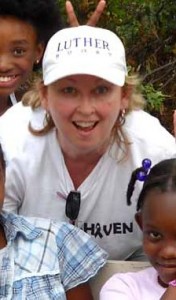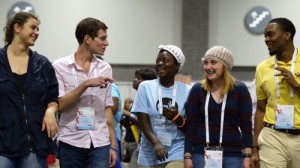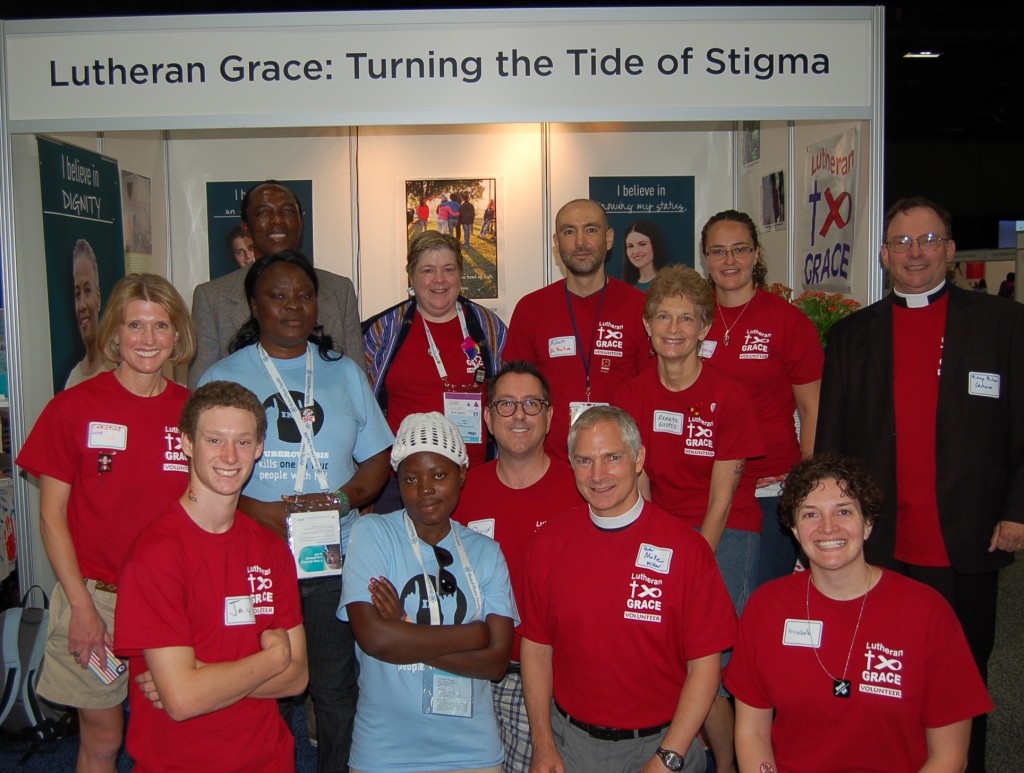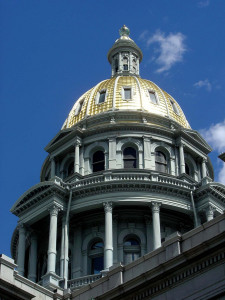This piece is part of the Washington, D.C. installment of the “Advocating on the Road” blog series.
By Kati Miller-Holland
Director, Church and Community Ministries
Lutheran Social Services of the National Capital Area
A text message popped up on my phone recently:
Hey Kati!
Hi, Carla. How are u doing?
Ok, bored.
Are you taking any classes this summer?
No.
What’s new?
Nothin. [pause]
It’s my birthday tomorrow.
Wow, I remember last year, Carla. A lot of memories. Hugs.
Last year, Carla had just graduated from high school here in D.C. and was excited to turn 18. HIV-positive from birth, shy Carla had become a regular participant in our Youth Haven camps and retreats. Last spring, she seemed to have found her niche after serving as a junior counselor at our spring Family Retreat, playing with the younger children. Two weeks after her birthday, however, her mother died. And Carla and her brother were alone and afraid.
Her Youth Haven mentor answered that anxious call and stood by her and her brother. I got involved raising funds for the funeral and burial, brokering some peace with estranged relatives, and helping the kids move in with some cousins. At least once a month, Carla drops me a line to say hi and, in her quiet way, say thanks. It’s been a tough year since her mother’s death, but Carla knows that she has friends to talk with and adults who believe in her.
At our recent Teen Retreat, a camper asked Dara, our camp director, “What made you want to work with kids with HIV?” It was an honest and important question, because we’ve heard it plenty of times from our kids that they don’t want pity. Dara answered, “Actually, the job found me. I wasn’t actually looking for something like this.” I would answer the question the same way, too.
In 2004, Lutheran Social Services of the National Capital Area called me to develop its AIDS camp program because I had quite a few years of experience in outdoor ministry and engaging church members in community service. I knew a lot about children, youth, organizing trips and retreats, and wrangling volunteers . . . but I didn’t know much about how HIV impacts the lives of kids in our urban centers, like Washington, D.C., here in the United States.
In 2004, 90 percent of our campers, like Carla, were HIV-positive. That’s about all I knew, mostly because the program was, frankly, pity-based. We rounded up these kids once a year, gave them a week of fun in the Maryland mountains, and then disconnected from them until the following year. I learned about the impact that stigma was having on their lives, about the linkages between poverty and the explosion of HIV cases in the African American community, about the “aging” of maternally infected youth unprepared to live-and-not-die. I became convinced that we were called to do more; we were called to do better by these young people.
These days, we work year-round with a variety of community partners to help our kids achieve goals that will help them live-and-not-die: to feel healthy and strong, to feel good about themselves, to have strong, healthy peer friendships and relationships with caring adults, to identify and develop sparks of interest that will give them career direction.
Last year, only 47 percent of our campers were living with HIV/ AIDS. (There has not been a baby born with HIV in D.C. since 2009 because of better testing and treatment of HIV-positive mothers.) The rest are “affected” — living in a household with an HIV-positive parent, or orphaned because of AIDS. We’re doing some new programming with kids and parents together. And we’re spending most of our time with youth between the ages of 14 and 21, who are proving to be particularly vulnerable to homelessness, crime and health relapses.
As we meet and collaborate with our partners, we continue to learn and be challenged to fight AIDS stigma and walk with young people who are looking for hope and a future. Our kids teach us to be compassionate, not pitying; to know them by name and not by a label.
I learned a lot of things, but the most important thing I learned came from an activist’s slogan: “HIV — you’re either infected or affected.”
That central truth rang a bell with me, because it’s the kind of thing that I’ve always known about Jesus’ compassionate ministry. Jesus approached the suffering and evil around him with this same attitude: Poverty. Demons. Oppression. Illness. Sin. We’re all either infected or affected. We’re in this together, whether we like it or not. For the “infected,” Jesus has compassion. For the “affected,” Jesus calls them to repentance and reconciliation.
These days, it means we need to come to terms with our participation in stigmatizing people who live with HIV/AIDS, and change our ways. The good news is that Jesus offers healing for everyone, and he extends open arms of unconditional love and mercy.

Kati Miller-Holland at camp!




